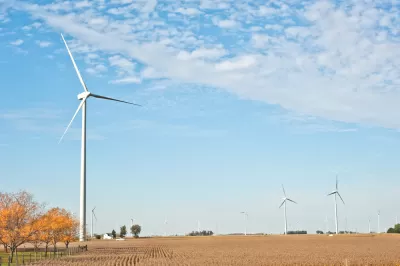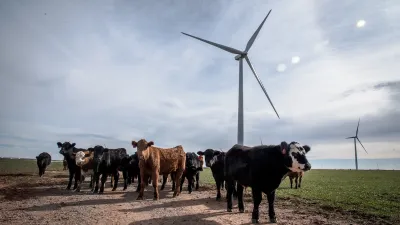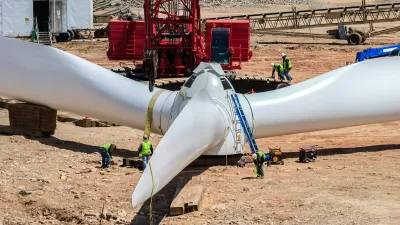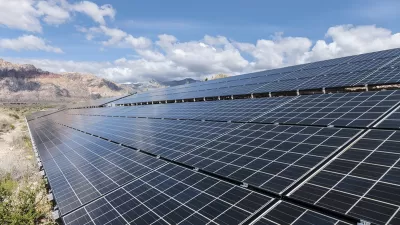A new state law allows counties to deny wind and solar projects in their jurisdictions, and at least ten counties have already moved to implement bans.

“At least 10 Ohio counties have passed resolutions blocking the development of new utility scale wind and solar projects within all or part of their jurisdictions in the last year,” with two more counties considering similar measures, reports Jake Zuckerman of the Ohio Capital Journal, threatening the growth of the renewable energy industry in the state.
Neil Waggoner, an operative with the Sierra Club’s Beyond Coal campaign, said “These bans close off communities from the investment dollars driving these projects, new sources of revenue for local services and education, and also limit local property owner rights.”
Notably, counties do not have similar authority to block local fossil fuel projects. In fact, Zuckerman points out that “the state passed legislation last year removing authority from local governments seeking to block new buildings within their borders from natural gas hookups, an effort seen in some progressive cities to decarbonize buildings.”
Supporters of the bill say it returns control to local residents, but “Some of the opposition to wind turbines gets a bit more far-fetched,” Zuckerman adds. One local group fighting wind farms uses photos of wind turbines on fire to drum up fear on their website. “The Energy News Network previously reported on other dubious claims about renewables made during the legislative process, including one of solar panels ‘leaking’ chemicals like lead or cadmium into the soil.”
FULL STORY: Ten Ohio Counties Ban Wind, Solar Projects Under New State Law

Alabama: Trump Terminates Settlements for Black Communities Harmed By Raw Sewage
Trump deemed the landmark civil rights agreement “illegal DEI and environmental justice policy.”

Planetizen Federal Action Tracker
A weekly monitor of how Trump’s orders and actions are impacting planners and planning in America.

The 120 Year Old Tiny Home Villages That Sheltered San Francisco’s Earthquake Refugees
More than a century ago, San Francisco mobilized to house thousands of residents displaced by the 1906 earthquake. Could their strategy offer a model for the present?

Opinion: California’s SB 79 Would Improve Housing Affordability and Transit Access
A proposed bill would legalize transit-oriented development statewide.

Record Temperatures Prompt Push for Environmental Justice Bills
Nevada legislators are proposing laws that would mandate heat mitigation measures to protect residents from the impacts of extreme heat.

Downtown Pittsburgh Set to Gain 1,300 New Housing Units
Pittsburgh’s office buildings, many of which date back to the early 20th century, are prime candidates for conversion to housing.
Urban Design for Planners 1: Software Tools
This six-course series explores essential urban design concepts using open source software and equips planners with the tools they need to participate fully in the urban design process.
Planning for Universal Design
Learn the tools for implementing Universal Design in planning regulations.
Clanton & Associates, Inc.
Jessamine County Fiscal Court
Institute for Housing and Urban Development Studies (IHS)
City of Grandview
Harvard GSD Executive Education
Toledo-Lucas County Plan Commissions
Salt Lake City
NYU Wagner Graduate School of Public Service





























